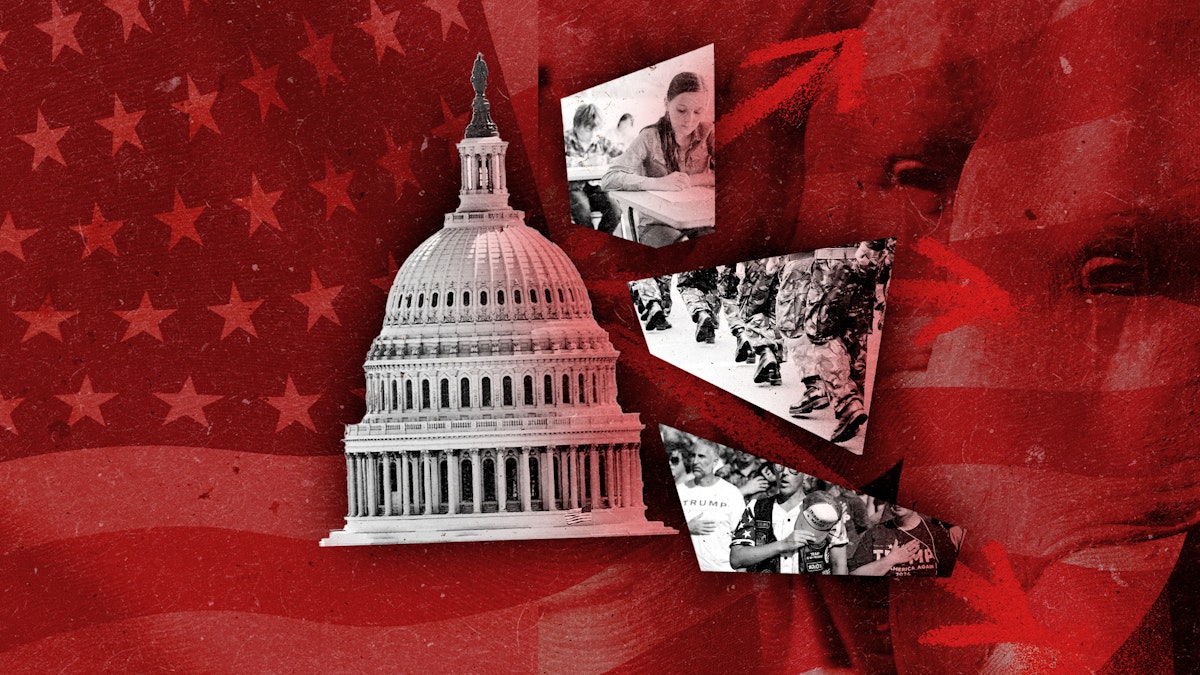The Party Of Limited Government No More

For decades the central pillar of American conservatism has been small and limited government. Ronald Reagan put it most succinctly in his first inaugural address famously quipping that “Government is not the solution to our problem, government is the problem.” But last week, when Florida Governor Ron DeSantis signed a law stripping Disney World of its unique independent status, it became clear that something has shifted, that todays conservative leaders are less shy about using the levers of governmental power. It is a sea change in American politics.
The Florida attack on Disney, which certainly seemed retaliatory, sparked a serious and fructive debate on the Right. It wasn’t just the MSNBC and Bulwark, Never Trump, pretend conservatives throwing their usual fit, this time. Sturdy Right-wing pundits and elected officials alike publicly criticized the legislation as big government overreach. They have a point, but then again, so does Ron DeSantis.
Limited government is no longer the core principle of American conservatism precisely because many on the Right now believe that progressive politics and policies have already corrupted the very society that limited government was meant to shield and protect. We can see this in the Florida parental rights bill, falsely called the “don’t say gay” bill that was at the root of the Disney ruckus to begin with. Traditionally, conservatives would argue that local school boards, not the state, should be in control of curriculum, but the wokism professed in our classrooms has convinced DeSantis-style Republicans that the blunt instrument of big government must at times be used.
This shift in conservative thought has broad implications that go well beyond Mickey Mouse. In regard to big tech and social media for example, prominent Republicans, such as Sen. Josh Hawley, have expressed support for greater government regulation over platforms. That is likely to be a GOP priority — should they regain power in the midterms — notwithstanding the fact that Elon Musk used his billions to buy Twitter, a market, not a government solution to the site’s free speech problems.
It is by now conventional wisdom that the presidency of Donald Trump inaugurated what we call the New Right. On some issues, the foundations of this new political philosophy are crystal clear. Strong border enforcement, an aversion to globalism and trade deals that hurt the United States, a new willingness to full-throatedly fight the culture wars. On other issues, like support for Ukraine in its fight against Russia, there are stark divisions within the new right coalition. First among the issues that must be grappled with by this new wave of conservatism is the role and scope of government, especially regarding its interactions with institutional and corporate power.
Part of this stems from the fact that many major American corporations have decided to rush headlong into the cultural and political fray. No longer satisfied to simply sell products and shares, they see themselves as good corporate citizens, ready always to bend along the curve of what they view as morality. These efforts have almost always led them to support progressive propositions on issues like gender and race in large part because progressives have been the squeaky wheels. Corporations feared progressive campaigns against them but always sort of understood that the right would not fight that way. That’s over.
What remains to be seen, and what must be debated, is whether this new use of governmental power by the American right is a temporary corrective, one that can lapse if some ideological balance can be restored to American institutions, or if it will be a lasting feature of new Right conservatism. Signs certainly seem to be pointing to the latter. This is in large part owing to the fact that government is one of the last areas of American institutional life in which conservatives hold any real power.
Wherever one stands philosophically on the government exerting leverage over corporate and institutional power, it is impossible to deny that it gets results. With myriad crises from the border to the classroom, from tech platforms to soaring energy prices there is a strong argument to be made that the ends these days justify some big government means. Will there be occasional overreach? Almost without a doubt. But then again, it can be argued that this is exactly why we have courts.
Today, American conservatives feel at once backed into a corner by the progressivism of almost every elite class, but at the same time feel a growing populist power among the people. That tension, more than anything else fueled the rise of Donald Trump and of the new Right. The debate over how to use government power is a productive one. In fact, the only thing to fear about it is that could slide into name-calling instead of a fertile ground to grow ideas that can pull America out of what most people feel is a current morass.
With what seems to be a red wave looming in November, power is on the horizon for the GOP. For the first time, how to use that power, and to what extent, is a serious debate among conservatives. It is one that we should all be anxious for.
The views expressed in this opinion piece are the author’s own and do not necessarily represent those of The Daily Wire.
" Conservative News Daily does not always share or support the views and opinions expressed here; they are just those of the writer."





Now loading...